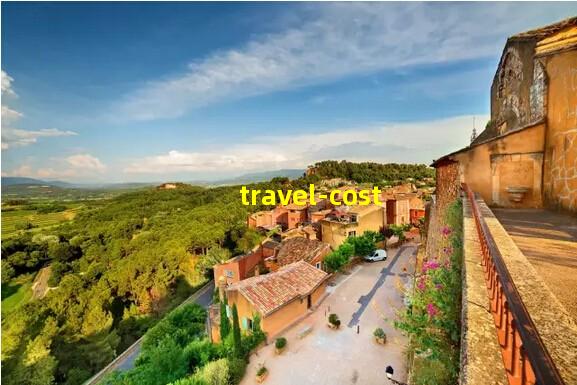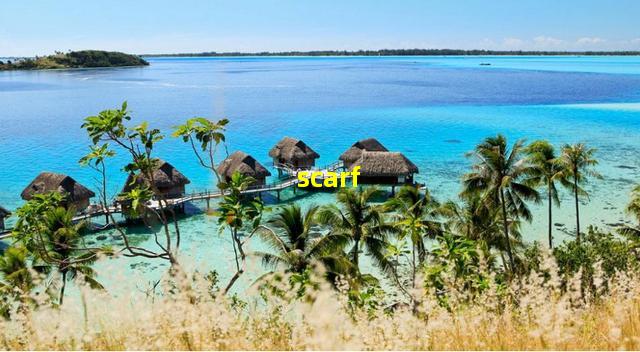旅行的费用是多少的英文(你这次旅行花了多少钱的英文)
1、旅行的费用是多少的英文
How much does it cost to travel?
Traveling is an exciting experience that allows us to explore new places, learn about different cultures, and create unforgettable memories. However, one of the most common questions that travelers often ask is, "How much does it cost to travel?"
The cost of traveling can vary greatly depending on various factors such as the destination, duration of stay, mode of transportation, type of accommodation, and personal preferences. Let's break down some of the major expenses involved in travel:
1. Transportation: The cost of transportation can take up a significant portion of your travel budget. This includes flights, train tickets, rental cars, or public transportation fares. Prices can vary depending on the distance, time of year, and destination.
2. Accommodation: Finding a place to stay is another important aspect of travel planning. You can choose from a range of options including hotels, hostels, guesthouses, or vacation rentals. The prices will vary depending on the location, amenities, and luxury level desired.
3. Food and Drinks: Trying local cuisine is an integral part of traveling. While some destinations may have relatively inexpensive food options, others may be more expensive. It is important to budget for meals, snacks, and beverages throughout your trip.
4. Activities and Sightseeing: Exploring popular attractions, engaging in adventure activities, and experiencing local culture often require additional expenses. Entrance fees, guided tours, and tickets for activities such as safaris, museum visits, or water sports should be considered while planning your budget.
5. Miscellaneous Expenses: It is always wise to budget for unexpected expenses such as travel insurance, visa fees, souvenirs, and tips. These costs may vary depending on individual preferences and the destination visited.
When calculating the total cost of your trip, it is essential to research and plan ahead. Travel websites, online forums, and travel blogs can provide valuable information about average costs in different countries and cities.
Remember, traveling can be tailored to fit any budget. You can choose to stay in budget accommodations, opt for affordable local transportation, or minimize dining expenses by trying street food or cooking your own meals. The key is to prioritize your expenses based on your interests and preferences.
So, next time you wonder how much it costs to travel, remember that there is no fixed answer. It all depends on your choices and how you plan your trip. With careful planning and budgeting, you can embark on a memorable journey without breaking the bank.

2、你这次旅行花了多少钱的英文
My Expenses on this Trip
During my recent trip, I had an amazing time exploring new places and immersing myself in the local culture. Of course, every trip comes with its own expenses, and I'm always mindful of my budget. So, how much did this trip cost me?
Accommodation
Finding a good place to stay within my budget was a priority. I opted for budget-friendly accommodations such as guesthouses and hostels. The total cost for accommodation for my entire trip was $500.
Transportation
Getting around in a new place can be expensive, especially if you choose to take taxis or private transportation. To save money, I relied on public transportation like buses and trains. Altogether, my transportation expenses amounted to $300.

Food and Drinks
One of the highlights of traveling is trying the local cuisine. I enjoyed various street food and traditional dishes during my trip. Although dining out can be expensive, I managed to find affordable options and spent around $400 on food and drinks.
Sightseeing and Activities
Exploring new destinations often comes with entrance fees, guided tours, and other activities. I budgeted around $350 for sightseeing and activities, ensuring I had enough to experience the attractions and landmarks that interested me.
Miscellaneous Expenses
There were some miscellaneous expenses during the trip, such as souvenir shopping and unexpected expenditures. I set aside about $200 for these miscellaneous expenses.
Overall, the total cost of my trip added up to approximately $1750. It is important to note that travel expenses can vary depending on the destination, duration, and personal preferences. By planning and being mindful of my expenses, I was able to enjoy a wonderful trip without breaking the bank.
3、花费多少钱用英语怎么说
How to Say "How much does it cost?" in English
As a seasoned traveler, you might often find yourself in situations where you need to ask about the cost of something. Whether it's a souvenir, a meal at a local restaurant, or a tour you want to take, knowing how to ask for the price in English will come in handy. So, how do you say "How much does it cost?" in English? Let's find out!
In English, the most common way to ask about the price of something is to say, "How much does it cost?" This simple and straightforward question will help you get the information you need. You can use it in various situations, from shopping at a market to booking accommodations or transportation.
For example, if you are at a street market and want to know the price of a beautiful handmade scarf, you can ask the seller, "Excuse me, how much does it cost?" They will then provide you with the price, and you can decide whether it fits within your budget.

It's important to remember that different countries and cultures may have different customs when it comes to bargaining and negotiating prices. In some places, haggling is expected, while in others, prices are fixed and non-negotiable. Therefore, it's always a good idea to do some research or ask locals about local customs before engaging in any price negotiations.
Additionally, it's helpful to learn some useful phrases related to pricing, such as "Is there a discount?" or "Can you give me a better price?" These phrases can come in handy when you want to negotiate or inquire about any available deals.
In conclusion, knowing how to ask about the cost of something is an essential skill for any traveler. By learning the phrase "How much does it cost?" in English and some related phrases, you'll be well-prepared to navigate the world of prices and make informed decisions during your travels.
Remember, communication is key, and being able to effectively communicate your questions about prices will ensure a smoother and more enjoyable travel experience. So, the next time you're out exploring the world, don't hesitate to ask, "How much does it cost?"
4、旅行的费用英语怎么说
Traveling Expenses in English
Traveling is an exciting experience that allows us to explore new places, discover diverse cultures, and create unforgettable memories. However, one important aspect that we need to consider before embarking on any trip is the cost involved. In this article, let's explore how to talk about travel expenses in English.
When discussing travel expenses, it is essential to be familiar with the basic vocabulary that revolves around money. Here are some useful terms:
1. Transportation: This includes the cost of flights, trains, buses, or any other means of transportation required for reaching your destination. For example, "The flight tickets to Paris were quite expensive."
2. Accommodation: This refers to the cost of staying at hotels, hostels, or any other place of lodging during your trip. For instance, "We managed to find affordable accommodation in a cozy guesthouse."
3. Food: This involves the expenses incurred for meals throughout your journey. You can say, "We tried the local cuisine at various restaurants, but it was a bit pricey."
4. Activities and Attractions: These are the costs associated with visiting tourist spots, museums, theme parks, or engaging in any entertainment activities during your travel. For example, "The entrance fee to the art museum was well worth the price."
5. Souvenirs and Shopping: This describes the money spent on buying gifts or personal items while traveling. You can mention, "I couldn't resist buying some unique souvenirs from the local market."
Remember, it is important to plan your budget before you start your trip. It is also helpful to research and compare prices to find the best deals and save money.

In conclusion, understanding how to discuss travel expenses in English is crucial for any traveler. Knowing the right vocabulary will help you communicate effectively and manage your finances during your journey. By being aware of your travel expenses, you can enjoy your trip without worrying about overspending.

.jpg)
.jpg)
.jpg)
.jpg)
.jpg)
.jpg)